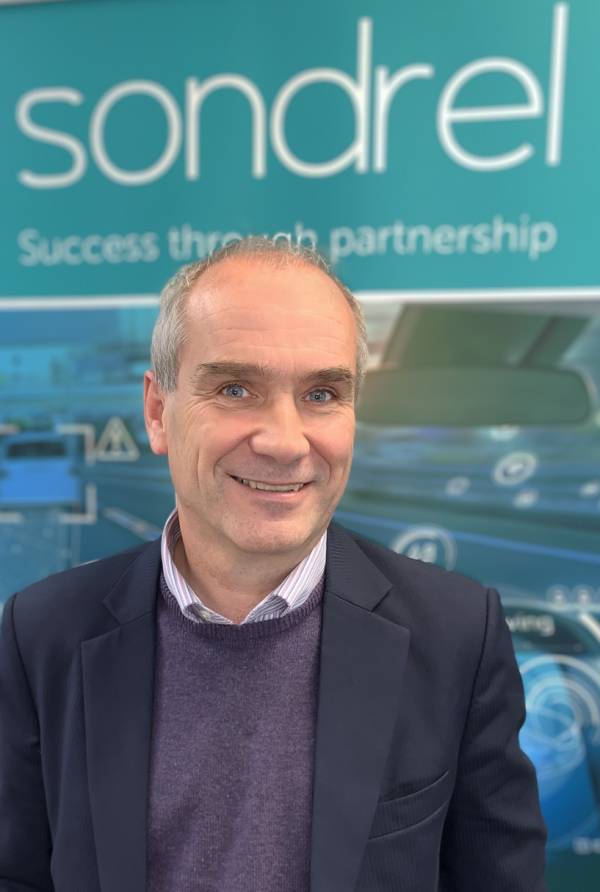Interview with CEO
Interview with Founder and CEO, Graham Curren
 I started Sondrel because my view of the market at the time (2002) was that there were a lot of small design companies and also huge in-house design teams. There was a gap that would grow as chips would only become more complex taking them out of the skill and price range of many companies. I founded Sondrel with the aim of being able to take on the design of a chip that would need teams of engineers working for a year or more and provide some economy of scale.
I started Sondrel because my view of the market at the time (2002) was that there were a lot of small design companies and also huge in-house design teams. There was a gap that would grow as chips would only become more complex taking them out of the skill and price range of many companies. I founded Sondrel with the aim of being able to take on the design of a chip that would need teams of engineers working for a year or more and provide some economy of scale.
How well did that work out?
Badly to start with, because it was at the end of the dotcom boom (or the start of the bust). However, over time, things improved and, over the last 18 years, we’ve grown at an average of around 25% every year. We had to grow, of course, to be able to reach the staffing levels so we could handle design contracts for big complex digital chips. In fact, we are one of the few companies in the world with the staff and expertise to tackle such enormous projects – apart from those with in-house design teams. And with over 200 engineers, we can be working on several multi-billion transistor chips simultaneously, which is very rare in our industry.
"Over the last 18 years, we’ve grown at an average of around 25% every year"
How big are we talking?
We are regularly designing large chips such as a recent one of 600 mm2 using 7 nm and we are already working on 6nm and 5nm designs.
That would be beyond the skills of many in-house design teams!
Exactly. Which is why they are increasingly coming to us as we have the experience of designing the architecture of big chips and solving the many associated challenges such as the NoC (Network on Chip), timing issues between different parts of the chip (and between different chiplets for a SIP design, etc. As we have solved these challenges on many different chips, we provide a low risk means to get to market faster. Part of this success is that engineering teams have access to the rest of the 200 plus engineers working for Sondrel to brainstorm for ideas, additional skills and experience.
Do you only do big chips?
That is what we are famous for but, of course, we also do smaller projects to smooth out the cash flow and the work flow, and where there is a specific skill required – low power or high security are two examples that we see a lot. These also provide the variety that our designers really like as it enables them to learn new skills.
Sondrel is very well known in Europe and Asia but much less so in the USA. Why is that?
Growing a company organically has to be done at the right speed. Too fast and you can’t manage it (and you run out of cash). Too slow and others take your market share. We are headquartered in the UK so naturally our first focus was Europe. Then Asia as we have offices there with design engineers so it was logical to have sales teams there too. 2020 was the year that we are really starting to build our presence in the US starting with Silicon Valley.
How has COVID affected Sondrel?
Fortunately, hardly at all. Unlike many design companies that have teams of people in offices as the only way to operate, we have ensured that all our staff have the ability to work effectively from home with fast, secure internet connections to our servers. As lockdowns were imposed in the various countries round the world that we operate in, we simply closed the office and the staff started working from home the next day. It helps that we have more senior, experienced staff that don’t have to be closely supervised to do their work. As a result, not a single customer project has been delayed by COVID issues, and indeed we believe that productivity has gone up.
That’s great forward planning!
The ability to work from home is just one of the things that we have in place to make Sondrel a great place to work. I’m a firm believer that happy staff work better and are committed to go that little bit extra if needed. It certainly showed by the way that everyone pulled together to cope with all the issues of the pandemic.
What else do you do for staff?
We have always had flexible working hours which helped when staff had to also become teachers for their children locked down at home. Another big thing is the Social Committee that every office has to organise events from paintball to family picnics and from bowling to flower arranging. These events help bond us into a big family. Even during lockdown, they were organising quiz nights to keep people in touch with one another. Despite many requests, we have yet to manage a virtual curry night!
